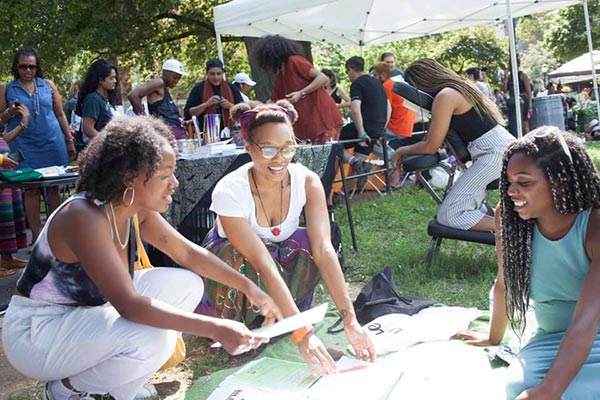Community News
The Healthy Bodegas Initiative is Making Fresh Produce Accessible One Bodega At A Time
By Linda Thrasybule
Rachel Whoo, a Bedford-Stuyvesant resident of two years, often asks friends to drive her to Park Slope or Red Hook to get fresh produce around her apartment. She said, the options are just too limited. “The only thing they seem to have are bananas,” she said of the bodegas closest to her house. “There isn’t even enough healthy junk food like nuts or natural fruit juices. There just isn’t enough variety.”
To attract residents like Whoo, and to provide healthier options for residents in Bedford-Stuyvesant, the New York City Department of Health and Mental Hygiene launched the Healthy Bodegas Initiative this past March. The initiative was created to boost the supply of fresh produce, low-fat dairy products and whole grains in neighborhoods with the highest rate of poverty and chronic disease.
Since 2006, the Healthy Bodega Initiative has worked in neighborhoods like East and Central Harlem, the South Bronx and Central Brooklyn. However, the change has not been instantaneous. Donya Williams, the director of the program, thinks it will take time before people see a difference.
Danielle Roberson, a Bedford-Stuyvesant resident for 28 years, has seen an increase in the amount of fruits now offered at the store, but she prefers buying her fruits and vegetables at the supermarket. “I only go there when I’m in a rush to grab a banana,” she said.
Participating bodegas are visited a minimum of twice a month during a six-month period. Store owners get incentives, such as reusable shopping bags for customers who buy $2 or $3 worth of produce; display crates and baskets so that fruits and vegetables look presentable and appetizing to customers; and starter kits for those who have a deli, which includes a cutting board, knife and plastic containers.
In Bedford-Stuyvesant, the program recruited 18 bodegas, which is just a small percentage of stores in the neighborhood.
Bodegas in Bedford-Stuyvesant make up about 80 percent of all food stores, with one in three selling low-fat milk compared with nine in 10 supermarkets, according to a 2006 report from the New York City Department of Health and Mental Hygiene. The report also notes that Bedford-Stuyvesant has 176 bodegas compared to 12 supermarkets.
Some bodega owners are trying to provide better quality produce for customers. Mohamed Al-Gazzali, the owner of Food Market located on Throop Avenue, said he is trying to put together a better display for his apples, oranges, bananas, tomatoes and green peppers. “If they see it, they buy it.”
Faisal Ali, the manager at L & H Market, said the store started selling organic food products about eight months ago because customers asked for it. “If there’s a demand, then I’ll get it.”
The challenge for the New York City Department of Health is to find fresh produce distributors willing to deliver produce to the neighborhood,” said Williams. The Healthy Bodegas Initiative has tried to link bodegas with local distributors.
For example, Red Jacket Orchards, a farm distributor located in the Finger Lakes region in upstate New York, is currently distributing to eight to 10 stores in the community, according to Williams. During the month of October, the program plans to recruit more bodegas in the neighborhood and to continue looking for local farmers who are willing to distribute.
Early this year, the New York City Department of Health enlisted Red Jacket Orchards’ help to figure out ways to make fresh produce accessible in Bedford-Stuyvesant.
“Our goal is to make this viable on a smaller scale,” said Adam Gordon, a distributor from Red Jacket Orchards. “It has to be financially viable for the farmer, it has to be profitable for the bodega owner, and it has to be affordable for the customer.”
Bodega owners often have problems finding space to store perishable items and improving displays of healthy foods. Red Jacket Orchards recently received grant money allowing them to purchase small refrigerators that will be placed in bodegas with limited space.
According to Gordon, Red Jacket Orchards isn’t making a profit from the program, but he believes that people should have access to low-cost produce. “We have a long way to go but we care about this,” he said, “it’s meaningful to us.”



